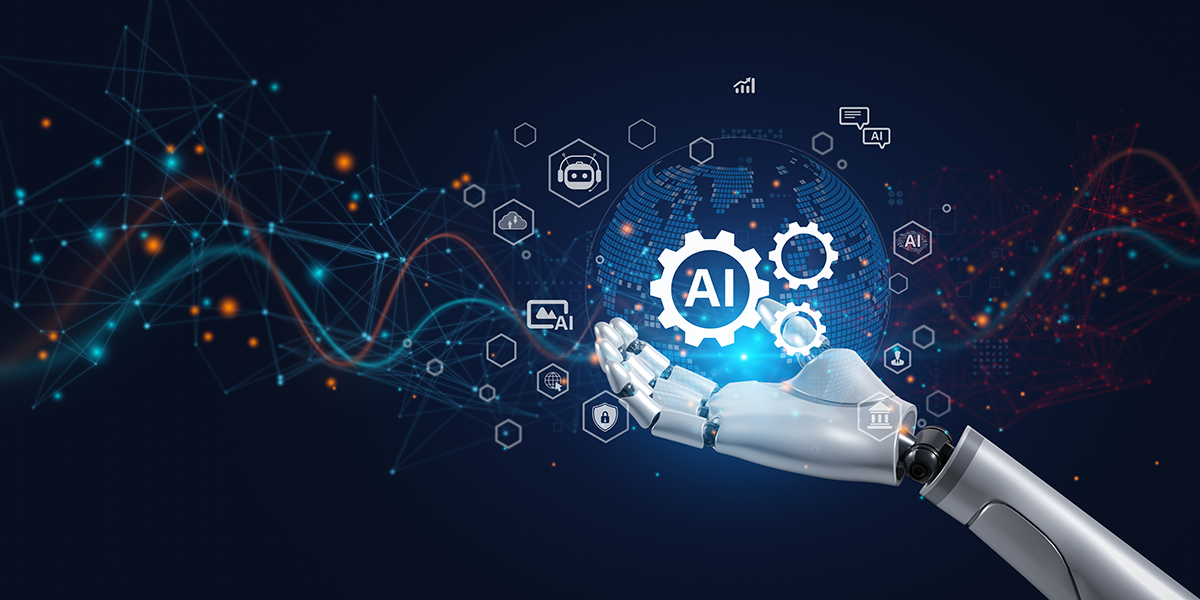Agentic AI systems: Bridging automation and human intelligence

Highlights
What is Agentic AI? AI systems that learn, adapt, and make decisions autonomously.
Key Features: Autonomy, adaptability, and contextual awareness.
Business Benefits: Increased efficiency, smarter decision-making, cost reduction, and scalability.
Industry Applications: Healthcare, retail, finance, and manufacturing.
Case Study: How Johnson & Johnson accelerated drug discovery using agentic AI.
Challenges: High costs, data quality concerns, ethical considerations, and integration complexities.
Implementation Strategy: Define objectives, ensure data quality, start with pilots, and collaborate with AI experts.
What if artificial intelligence could do more than just follow instructions? What if it could learn, adapt, and collaborate like a human teammate? That’s the power of agentic AI systems, a groundbreaking innovation combining the speed of automation with the intelligence of human-like decision-making.
These systems are not just tools; they are enablers of smarter operations and better outcomes across industries. Let’s explore what they are, how they work, why they matter, and how businesses are using them to drive transformation.
Beyond automation: Why Agentic AI is the next big thing
AI has rapidly evolved in the last few years , thanks to the advent of Generative AI and LLM models . Agentic AI is the new kid in the block. Agentic AI describes artificial intelligence systems capable of making independent decisions and performing actions autonomously. These systems can process information, make decisions, and carry out tasks without needing constant human oversight. Essentially, it is an AI with enhanced autonomy, operating within a specific framework of rules or objectives
Agentic AI stands apart because they go beyond static programming. They are designed to think, adapt, and act in dynamic environments. To better understand their capabilities, let’s break down their three key features:
Autonomy
These systems can make decisions on their own, within certain boundaries. For example, in logistics, they reroute deliveries in real time to avoid delays, without waiting for human instructions.
Adaptability
Unlike rigid automation, agentic AI learns and improves over time. When new data or situations arise, they adjust their actions accordingly, whether it’s predicting customer behavior in retail or optimizing factory operations.
Contextual awareness
They can analyze and understand their operating environment. In healthcare, for example, an agentic AI might recommend a treatment plan tailored to a patient’s medical history and environment.
The secret ingredient for smarter business operations
Businesses need solutions that are not only efficient but also intelligent. This is where agentic AI shines. They do more than automate, they help businesses evolve. Here’s why they are essential:
Efficiency gains
Agentic AI systems can manage repetitive and time-consuming tasks, allowing human employees to focus on more strategic and creative activities. This leads to increased productivity and operational efficiency
Smarter decisions
By analyzing extensive data and generating insights, agentic AI can support improved decision-making. It can identify trends, forecast outcomes, and provide recommendations, enabling businesses to make well-informed choices
Scalability
They handle increasing demands and complexities as businesses grow. These systems can easily scale to accommodate growing business needs without a proportional increase in costs or resources. This scalability is particularly useful for businesses experiencing rapid growth or fluctuating demand
Risk Management
Agentic AI can monitor and analyze data to detect potential risks and anomalies. This proactive approach to risk management can help businesses mitigate threats and ensure compliance with regulations
Real-world AI magic: Where agentic AI shines
Agentic AI systems have practical applications across various industries, proving their versatility and value. Here’s a closer look at where they are making an impact:
1. Healthcare
- Detect diseases early through advanced imaging analysis and enable predefined processes depending on the findings
- Recommend personalized treatment plans tailored to individual patients.
- Monitor health data in real time to enable preventive care.
2. Retail
- Revolutionize shopping experiences with real-time personalization.
- Optimize inventory to reduce waste and boost availability.
- Improve customer support with AI-powered chatbots that adapt to user needs.
3. Finance
- Detect fraudulent transactions instantly through real-time analysis and initiate applicable protocols to mitigate the risks
- Manage investment portfolios dynamically to align with market trends.
- Enhance credit risk assessments with predictive modeling.
4. Manufacturing
- Prevent costly breakdowns with predictive maintenance.
- Supercharge productivity with optimized workflows.
- Guarantee quality with real-time inspections.
J&J’s recipe for faster, smarter drug development
To see agentic AI in action, let’s look at how Johnson & Johnson (J&J) has revolutionized its drug discovery process with these systems. Traditionally, discovering new drugs takes years of research and significant costs. J&J, however, used agentic AI systems to overcome these challenges.
What they did
J&J employed an AI system capable of analyzing large datasets of chemical compounds and biological interactions. This system autonomously identified potential drug candidates, predicted their effectiveness, and suggested optimal synthesis methods. Researchers provided feedback, which the AI used to refine its recommendations over time.
What they achieved
The results of integrating agentic AI into their process were transformative:
- Faster drug discovery: Early phases of the process were reduced by 60%, significantly accelerating timelines.
- Cost savings: With fewer manual trials, development expenses were cut dramatically.
- Better accuracy: The AI’s insights helped prioritize viable candidates, streamlining the entire pipeline.
This case study highlights how agentic AI can deliver measurable results, especially in complex fields like healthcare.
Why agentic AI is a must-have for businesses
Businesses today face an array of challenges and opportunities, and agentic AI presents a unique solution to navigate this landscape. Here are several compelling reasons why integrating agentic AI into your business strategy is not just beneficial but essential:
Boost Efficiency and Productivity
Agentic AI automates complex tasks and enables real-time decision-making. This automation allows employees to redirect their focus from routine processes to more strategic and creative tasks, thereby enhancing overall productivity and operational efficiency.
Enhance Decision-Making
Agentic AI can sift through vast amounts of data to identify patterns, trends, and anomalies. By leveraging these insights, businesses can make more informed and accurate decisions, leading to better business strategies and outcomes.
Personalize Customer Experiences
Understanding customer preferences and behaviors through agentic AI allows for highly personalized experiences. This can lead to tailored recommendations, offers, and communications, ultimately enhancing customer satisfaction and fostering loyalty.
Reduce Costs
By automating tasks and optimizing processes, agentic AI helps reduce operational costs. For instance, it can streamline supply chain management, improve inventory control, and minimize resource wastage, contributing to significant cost savings.
Drive Innovation
Agentic AI spurs innovation by generating new ideas, predicting market trends, and identifying opportunities for growth. This innovation can be applied to product development, marketing strategies, and other critical areas, helping businesses stay ahead of the curve.
Scale Effortlessly
As businesses grow, so does the complexity of operations and the volume of data. Agentic AI can scale seamlessly to accommodate this growth, ensuring that operations remain efficient without necessitating a proportional increase in human resources.
Manage Risks and Ensure Compliance
Agentic AI continuously monitors data to detect potential issues before they escalate. It also ensures compliance with evolving regulations by automatically updating processes, thereby managing risks effectively.
Gain Competitive Advantage
Early adopters of agentic AI gain a significant edge over competitors. By enhancing operations, customer experiences, and innovation, businesses can maintain a competitive advantage and outperform others in the market.
Adapt in Real-Time
Agentic AI’s ability to adapt to changes in real-time makes it highly responsive to dynamic market conditions. This agility allows businesses to pivot quickly in response to new opportunities or challenges, maintaining their relevance and competitiveness.
Integrating agentic AI into your business strategy not only enhances efficiency, decision-making, personalization, cost savings, innovation, scalability, risk management, competitiveness, real-time adaptation, and employee satisfaction but also positions your business for long-term success in today’s fast-paced, data-driven world.
The roadblocks to AI success
While agentic AI presents immense opportunities, its implementation comes with significant challenges that businesses must navigate. Without careful planning, AI initiatives can lead to inefficiencies rather than innovation.
High costs
The development and implementation of agentic AI systems can require significant investment in technology, infrastructure, and skilled personnel. Advanced models demand high-performance computing power, ongoing training, and specialized expertise, making AI adoption financially challenging—particularly for smaller organizations. Without a well-defined strategy, businesses may struggle to balance costs with measurable returns.
Data quality issues
AI is only as effective as the data it learns from. Incomplete, biased, or inconsistent datasets can lead to flawed predictions and unreliable outcomes. Ensuring high-quality data requires robust data governance, continuous validation, and bias mitigation strategies, which add another layer of complexity to AI implementation.
Ethics and accountability
AI-driven decision-making introduces concerns around fairness, transparency, and accountability. Bias in training data or algorithmic processing can reinforce systemic inequalities, while a lack of explainability can erode trust. As AI regulations evolve, businesses must navigate the ethical implications of automated decisions and establish frameworks to ensure responsible AI usage.
Integration complexities
Agentic AI solutions must seamlessly integrate into existing workflows, systems, and operational processes to deliver real impact. Many organizations face compatibility challenges when incorporating AI into legacy infrastructure, requiring significant technical expertise and change management efforts. Poor integration can lead to operational inefficiencies, resistance from teams, and difficulties in scaling AI applications.
Read more: Agentic AI vs. traditional AI: why enterprises need adaptive, self-learning systems
Building a smarter future: Agentic AI done right
To implement agentic AI systems effectively, businesses can take the following steps:
- Define Objectives: Businesses need to clearly outline the goals and objectives for the Agentic AI system. Understand what problems it should solve and how it will add value to the organization.
- Invest in data quality:: Organizations need to Identify the data required for the Agentic AI system to function effectively. Further, they need to ensure access to high-quality, relevant, and sufficient data. Data preparation, cleaning, and preprocessing are critical steps..
- Start small: Run pilot projects to test the systems before scaling them up. This allows the team to identify and address any issues before full-scale implementation.
- Collaborate with experts: Partner with AI specialists to ensure smooth integration and optimization. A typical team would include data scientists, AI engineers, domain experts, and project managers
Read more: The role of AI and automation in enhancing B2B segmentation.
Unlocking the potential of agentic AI
Agentic AI systems are changing the way industries work by combining automation with intelligence. These systems are paving the way for a smarter, more efficient future While there are challenges to implementation, businesses that invest in these systems can unlock new opportunities and efficiencies. The opportunity is here—are you ready to take the next step?
Discover how our expertise can drive your AI transformation.






